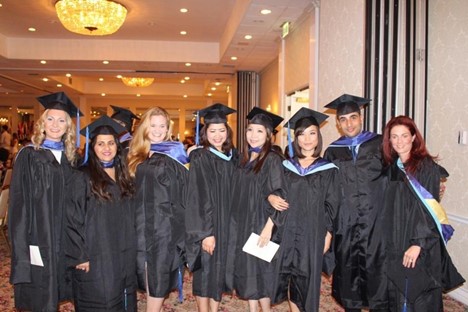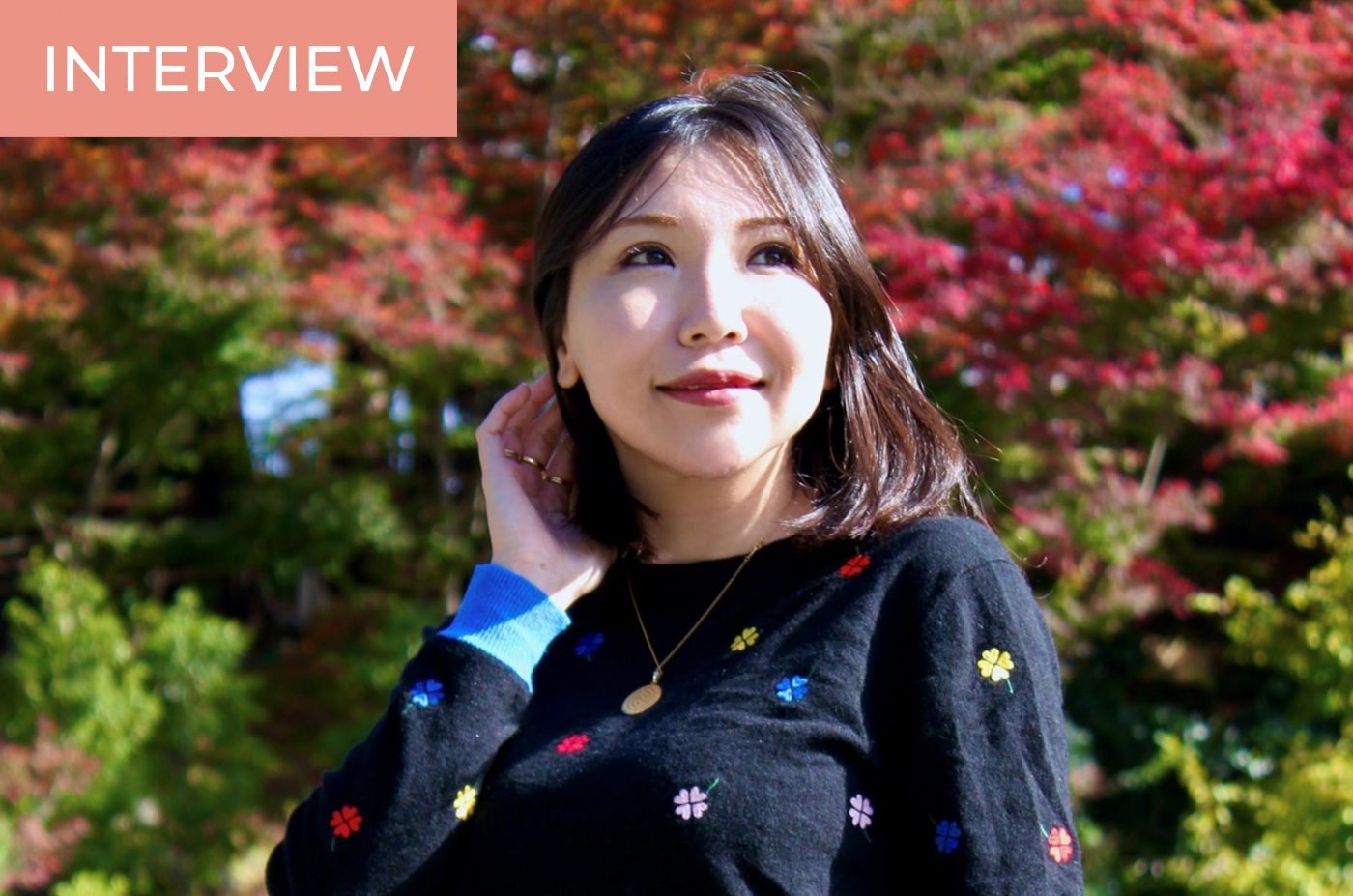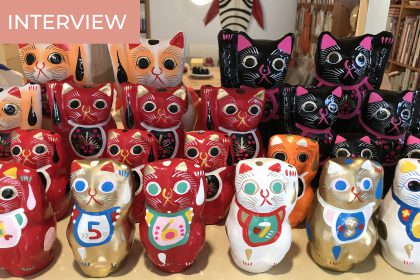Networking is like exercise—often something we’d rather avoid but necessary for enriching our lives. However, just as with exercise, you can learn to enjoy networking, with the right approach. Networking as a foreigner in Japan is especially nuanced, but fortunately, Sayuri Nishimoto, senior client solutions manager at LinkedIn, agreed to share her advice on bridging this culture gap and much more.
In this interview, Sayuri explains how simply sharing her hobbies with the world put her on an international career path, a journey that forced her to step out of her comfort zone to achieve her career goals. Ever passionate about gender equality in the workplace, Sayuri also discusses how online networking can play a key role in closing the management gender gap that plagues corporate Japan.
It All Started with a Hobby
You earned your undergraduate and graduate degrees in California and worked for prestigious companies in New York and Tokyo. How did your international career journey begin and how has it influenced who you are today?
I was born and raised in Kyoto. In my youth, I was interested in building websites. I enjoyed providing a platform where Japanese people and people from around the world could gather and communicate. I guess I’ve always been interested in building communities of people from different places. I wanted to share my hobbies. I had different kinds of pets and I was also into foreign music. So, I wanted to share my opinions with the world, and I wanted to hear how people from all over the world would respond.
This grew my interest in foreign cultures, and I decided to leave Kyoto after graduating from high school. I felt that if I could speak English, I could find better career opportunities, especially as a woman.
This experience also helped me discover my own identity and learn even more about my own Japanese culture.
After you built this community and moved abroad, what happened next?
First, I went to Canada for a month to study English at a language school. After that, I went to college in the U.S. I started out alone, so I was determined to make new friends and communicate with them in English. That gave me a chance to connect with people from different countries and make friends from a variety of backgrounds. This experience also helped me discover my own identity and learn even more about my own Japanese culture.
You also worked in New York, right?
After I graduated from college, I moved from California to New York because I heard it had a different lifestyle and work style. I wanted to see what that was like. The decision to move was sudden, and I didn’t have a job or a lot of money. Fortunately, a friend there offered me a place to stay until I could find work.
I was interested in working for a trading company as a way to become a bridge between the U.S. and Japan. Fortunately, I found an opportunity to work for an exporting company, and I decided to take it. This was a good experience for me, but I eventually learned that it wasn’t what I wanted to do. However, that’s what I like about the U.S. I could try so many different things to learn what I like and what I don’t like. That job also gave me the opportunity to keep living in New York where I made a lot of friends and met inspiring people. So, overall, it was a great experience.
When I lived in Kyoto, I was shy. However, my experience in California and New York made me become more extroverted. I had to do this just to get through life. I knew that one day I might have to go back to Japan, so I wanted to make the most out of the experience. I tried so many different hobbies and joined different clubs in college. I just tried to meet new people and experience so many different things. All of that made me a stronger and more decisive person at an early age. I became who I am today because of my experience abroad.

Networking 101
Networking doesn’t have to be about meeting people or talking to people online (…) you can network without even speaking with people.
What is your advice for people who are struggling to be outgoing but realize they need to network for their careers?
Especially in Japan, I think networking means that you are attending a special event and exchanging business cards. That’s difficult for introverts. However, these days there are a lot of events online. You can attend events in any country. If you are interested in a particular hobby or niche, you can just jump on Zoom and attend an event.
Networking doesn’t have to be about meeting people or talking to people online. You can use social networks like LinkedIn to find people in your industry, and you can connect with them and exchange messages. Or you can just post something related to your job or hobby and people who like that post may comment on it. In other words, you can network without even speaking with people.
A lot of people think networking is only for business. For me, networking is simply exchanging information with someone.
Let’s talk about the next, perhaps most difficult, step in this process. When we see someone online that matches our interests, and we want to talk to them, what is an appropriate way to get in touch, especially for introverts? After all, we can’t always just wait for people to contact us…
If someone comments on the content that you share, and you want to connect with that person, I would suggest sending them a direct message or connection request. When you do so, be sure to explain the things you have in common and say what you want to learn from them. Most people want to help those who reach out to them. If the conversation goes well, you can then move on to a Zoom meeting and, eventually, meet in person.
Got it. So, we’ve been talking about networking, but I’d like to take a moment to learn how you define the concept. What is your definition of networking?
A lot of people think networking is only for business. For me, networking is simply exchanging information with someone. It could help you grow your new opportunities, but it doesn’t have to be for business. Networking could be about your hobbies, gaining knowledge, or making friends. You may even meet someone who could become a mentor.
The Networking Culture Gap
To stand out, it’s good to have unique business cards.
What differences have you noticed between the way Japanese and non-Japanese people network? What advice do you have for a non-Japanese person who wants to make local connections in Japan?
In my experience, non-Japanese people tend to talk about more than just their jobs. They talk about mutual friends or hobbies. They try to see me as a person—not just a businessperson. In Japan, we exchange business cards and discuss our work. That’s it. We avoid asking personal questions.
So, if you’re a foreigner attending networking events with Japanese people, you may want to avoid asking personal questions, at least in the beginning. Talk about what you do, and slowly move on to more personal topics.
It’s also important to have business cards with you. To stand out, it’s good to have unique business cards. For example, my business card is square. That’s a conversation starter, and it’s not directly related to business. I also have a barcode that enables people to connect with me on LinkedIn. Lastly, my mission statement is on my card, and it explains why I want to connect with new people.
Now that I think about it, I noticed this when I network. I never intended for this to happen, but I’m always asked about the name of my brand, Saga Consulting. Japanese people almost always ask if the name has anything to do with Saga Prefecture, which it doesn’t. So, I almost always have to explain the name of my brand, which makes for a great icebreaker.
It’s also important to remember that Japanese people are really going to read your business card. People from other cultures typically don’t pay much attention to business cards, but a lot of Japanese people are taught to read your card carefully to understand your position and your background. So, this is another reason it’s a good idea to have a message or unique feature on your business card.
Bridging the Gender Gap through Networking
I started working for LinkedIn because I thought the platform could help Japanese women connect to more opportunities.
You’re passionate about empowering women in the workplace, and I’d like to explore this topic before we wrap up our conversation. What do you think should be done to increase the number of women in management and executive-level positions in the Japanese workforce?
I was surprised when Japan’s largest business lobby set the goal of having women fill 30% of management roles by 2020. I think 2020 ended with about 6% of those roles being filled by women. So, they pushed the goal back to 2030.
A lot of people—especially young people—that I talk to are not aware of this. That’s a big issue. They also aren’t aware of what’s going on in other countries. So, the first step is building awareness to show that this is an important issue and that other countries are working to address this. To do this, I think it is important for people who have studied or lived abroad to talk about it and share their opinions through seminars and events.
At the same time, we have to realize that culture doesn’t change instantly. I started working for LinkedIn because I thought the platform could help Japanese women connect to more opportunities. This is because a lot of Japanese women tend to be introverted and might not go out and look for opportunities the traditional way. However, if they use a professional social network, they can post about themselves and build their personal brands. By putting themselves out there online, new opportunities will come to them. Someone who needs them will find them.
Speaking of LinkedIn—and this actually applies to men and women—one of the hurdles for the platform is that a lot of Japanese professionals aren’t comfortable having a public profile. What would you say to people who feel that having a LinkedIn profile is akin to bragging or something that their current employer may frown upon?
That’s a tough question because I know of companies that prohibit employees from opening LinkedIn accounts. If you find yourself in that situation, you might want to consider quitting that job. There are a lot of opportunities out there at this moment. On the other hand, people can still have a basic profile without including a lot of information. Additionally, there are other professional networks where you don’t have to make your profile public—you can just share it with certain people.
So, the key is that you should do something—take some action to make your skills known so that you can be discovered. Is that correct?
Definitely. The first step is to open up a profile because there are a lot of supportive women on LinkedIn. For example, recently, one of my friends wanted to find work. However, she needed to balance her work with taking care of three children, and she wasn’t sure if a company would hire her, given her circumstance. So, I helped her open a LinkedIn account. We set everything up, and a lot of like-minded women connected with her. She discovered a place where she could discuss the challenges of working while raising a family.
I see a growing number of women supporting each other and posting on LinkedIn. You can see it in their headlines—phrases like “HR entrepreneur and mother of three kids.” I see a lot of women doing that here, and I like that about Japan.




